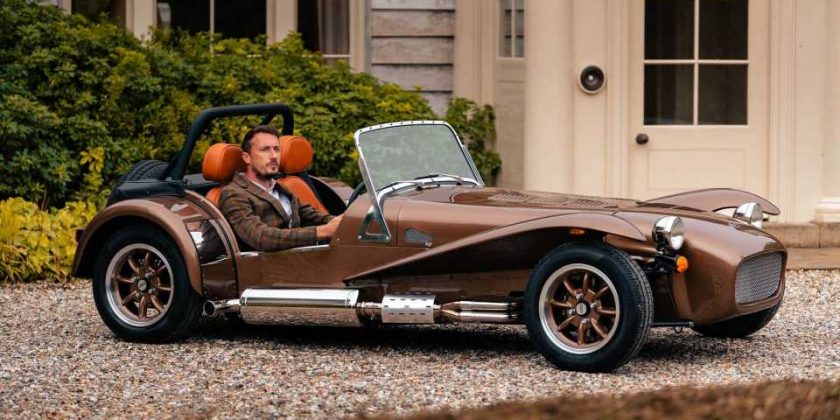The last time Caterham attempted to make a sports car with a closed cabin didn’t go as planned as the C120 was ultimately canned. Renault bought the project and went on to create the Alpine A110 mid-engined coupe to fight the Porsche 718 Cayman while the British brand continued exclusively with open-top vehicles. A new two-seater that could also have a roof but no combustion engine is currently being considered.
Caterham CEO Bob Laishley broke the news in an interview with Autocar during which he said an EV would complement the Seven rather than replace it. The head honcho went on to say it would be more attractive and modern than the traditional sports car. If green-lighted for production, the model is going to be built on a dedicated electric car platform with a rear-wheel-drive configuration.
Caterham Super Seven 2000
In an ideal scenario, Laishley says the two-seater EV weighs less than 700 kilograms (1,543 pounds) and delivers what he refers to as a 20-15-20 performance. What he means by that is you get 20 minutes of spirited driving around a race track on a full charge before juicing up the battery for 15 to have another go for 20 minutes. If Caterham can’t deliver this with an electric counterpart of the Seven, the company’s boss says it’s not even worth launching the vehicle.
The EV’s backbone is expected to be a steel spaceframe combined with a lightweight body made from either aluminum or carbon fiber. Caterham’s electric sports car is being envisioned with front and rear clamshells and Laishley suggests it could have a roof. It’s too soon to say whether he was referring to a coupe with a fixed panel, a targa top, or a different configuration.
A hybrid powertrain has already been ruled out because it would add weight, with Laishley saying that having two separate powertrains would be a “horrendous compromise.” As far as the EV is concerned, Autocar speculates it won’t hit the road until 2028 or so. In the meantime, the Caterham 7 is sticking with combustion engines even if a sales ban on new ICE-powered cars in the UK will come into effect in 2030 (five years earlier than in the UE). Laishley said demand from export markets is strong enough.
Source: Autocar
Source: Read Full Article

